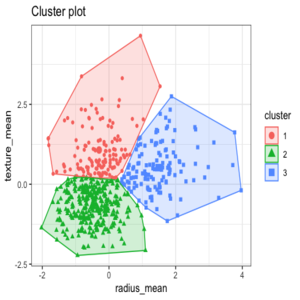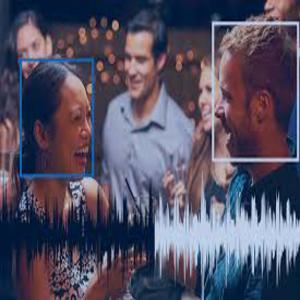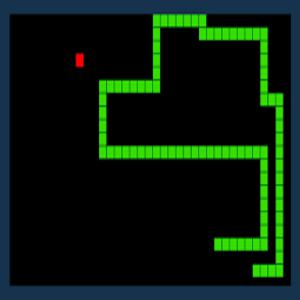About Me
As a software developer engineer, I am highly skilled in designing, developing, and maintaining high-quality software applications. I am someone who enjoys connecting the dots: be it ideas from different disciplines, people from different teams, or applications from different industries.
I have a strong foundation in computer science principles and a passion for staying up-to-date with the latest technologies and best practices. I am able to work effectively in fast-paced, collaborative environments and have a proven track record of delivering successful projects on time and to specification.
In my current role, I have gained experience in languages such as Java, Typescript, Python, and C++, as well as concepts such as Machine Learning and Data Analysis. I am always eager to take on new challenges and solve complex problems, and I believe that my skills and experience make me a valuable asset to any team.
Experience
Amazon Web Services
Software Development Engineer
Amazon Web Services
Software Development Engineer Intern
- Utilized Typescript to develop a JSON Schema Linter CLI, which provided authors with guidance on best practices and resulted in a 70% reduction in review labor hours.
- Developed a Java SDK and integration tests for the Code.AWS Rococo Eventing System.
North Carolina State University
IT Assistant
- Assisted students, faculty, and staff with technical support and troubleshooting for computers, printers, and other hardware and software in the Student Center
- Maintained inventory and placed orders for computer hardware and software as needed
- Set up and configured computers, laptops, and other equipment for events and meetings in the Student Center
- Provided support for the Student Center's audio-visual equipment, including projectors, microphones, and sound systems
- Collaborated with other IT professionals to resolve technical issues and implement new systems and technologies
- Assisted with training and orientation for new Student Center staff on IT-related systems and procedures
CloudOffis
Associate Engineer
- Automated the process of extracting relevant data from SMSF documents, yielding up to 80% reduction of work time per document.
- Transformed classification model using Active Learning techniques to detect and sustain both concept drift and data drift to adapt new documents as they turn up.
- Implemented dynamic multiprocessing in the pipeline, achieving a reduction in process time by 30%.
Knowarth Technologies
Machine Learning Intern
- Developed a multi-class classification model using Ensemble techniques for 1000+ unstructured SMSF documents distributed over 30 classes, attaining over 95% accuracy.
- Orchestrated the migration of the REST-based APIs to a cloud-based distributed system using AWS SQS and S3 Buckets.
- Evaluated different Object Detection architectures namely YOLOv3, YOLOv4, RetinaNet, CascadeNet, and Detectron 2 to identify borderless tables and cells with a custom dataset.
Knowarth Technologies
Project Intern
- Spearheaded a proof of concept model for extracting page location of keywords from Australian SMSF documents.
- Implemented a Flask Restplus API with Swagger UI connected to MySQL Database to track down details of the uploaded file along with its status and results.
Speech Research Group, Nirma University
Research Assistant
- Worked on Speech Processing and Audio Analysis Research Projects using techniques from Machine Learning and Deep Learning under the guidance of Professor Sapan Mankad.
Education
North Carolina State University
2021 - 2022Masters of Computer Science
CGPA: 4.0/4.0
Relevant Courses: Software Engineering, Artificial Intelligence, Database Management System, Computer Networks
Nirma University
2016 - 2020Bachelor of Technology in Information Technology
CGPA: 8.57/10.0
Relevant Courses: Linear Algebra, Data Structures, Theory of Computation, Design and Analysis of Algorithms, Machine Learning, Information Retrieval Systems, Deep Learning
Publication
IFSC : A Database for Indian Folk Songs Classification
Advances in Intelligent Systems and Computing, Springer Singapore
The paper was presented in the 25th International Symposium on Frontiers of Research in Speech and Music (FRSM 2020), jointly organized by National Institute of Technology, Silchar, India, during 8–9 October 2020.
Projects

MachineHack Hackathons
The repository contains notebooks of various MachineHack Hackathons covering multiple domains of Machine Learning and Deep Learning Worlds:
- Regression Problems
- Classification Problems
- Time Series Problems
- Range Prediction Problems

BOTAnshul
- Redesigned the future of employer-employee interaction in form of a personalized chatbot resume using python's open-source library Rasa.
- Deployed the mini version of me on a personal website using Heroku docker services, making conversations available 24×7 and accessible from any part of the world.

automeans
- Python Library for automating the scikit-learn K-Means Clustering Algorithm by optimising the selection of number of clusters.

Handy Cricket
- The game was made using powers of Open-CV and Keras library to identify hand signals denoting runs scored.
- The game would be played between you and the computer.
- Score more than the computer to win the Game.

PhotoEditor using OpenCV
- Apply Instagram-like filters or adjust/edit your Images using commands of OpenCV Python Library.
- Created a UI using Gradio Library to share the project.

Speaker Diarization
- Investigated state-of-art methods and speech processing techniques used in preexisting Speaker Diarization systems to identify the number of speakers and segmenting their respective speech time in conversational audio signals.
- Devised a novel framework and developed a model on features extracted from ‘The ICSI Meeting’ and ‘The AMI’ corpus using pyAudioAnalysis for segmentation and Hierarchical clustering for recognizing speakers.

Slytherin Game using Genetic Algorithm
- Developed a Genetic Algorithm for the old Snake Game using pygame library, resulting in a better score for computers than humans after mutating through a series of generations.

AMBeats: Android Music Player with Recommender System
The project involves developing an android app that displays all the songs stored in the local storage that can be played using a minimalistic user interface. The interface allows users to like the songs they hear and those songs are then saved onto an online database. These liked songs were then compared with other users who liked similar songs to provide new recommendations using Machine Learning algorithm.
View Project
Playback Attack Detection for Speaker Verification Systems
The project was a research-oriented work that involved extracting cepstral features from audio obtained from the ASVSpoof 2017 benchmark dataset, which were then analyzed to find out which features better affect the decision of whether the spoken speech is genuine or spoof.
View Project
Next-Word Prediction
The project involves developing a N-gram probabilistic model that predicts the next possible words based on the entered word or a sentence by the user. The prediction made by a pre-trained model trained on the text of multiple storybooks.
View Project
Named Entity Recognizer Guide
The project utilizes a combination of python and natural language processing to create a custom model that helps machine classify text based on person, location, money, time, date and much more. We show the use of Bidirectional LSTM and BERT Models to overcome the problem. The project can be launched as demo version using Gradio.
View ProjectSkills
- Python
- Machine Learning
- Natural Language Processing
- TypeScript
- Amazon Web Services
- Audio Analysis
- Deep Learning
- Active Learning
- Computer Vision
- Unity Software
- Data Visualization
- Tableau
- Statistical Modelling
- Predictive Analysis
- Exploratory Data Analysis
- Keras
- Numpy
- Pandas
- MySQL
- Firebase
- MongoDB
- Java
- C
- C++
- Flask
- HTML
- Wordpress
- Android Studio
- Amazon SQS
Certifications
Machine Learning and Deep Learning
- Machine Learning A-Z™: Hands-On Python & R In Data Science - Udemy
- Deep Learning A-Z™: Hands-On Artificial Neural Networks - Udemy
- Build Basic Generative Adversarial Networks (GANs) - Coursera
- Getting Started with AWS Machine Learning - Coursera
- Named Entity Recognition using LSTMs with Keras - Coursera
- Object Detection with Amazon Sagemaker - Coursera
- Fundamentals of Reinforcement Learning - Coursera
- Deep Reinforcement Learning: Hands-on AI Tutorial in Python - Udemy
Data Science
Hobbies
- Soccer
- Algo Trading
- Cricket
- Chess
- Badminton
- Trekking
- Baking
- Photo Editing
- Video Editing
- Anime